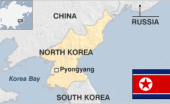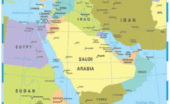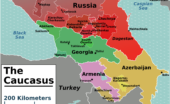Re The UN General Assembly Speaker Schedule is Here! I note that whoever will be speaking for Canada this year…
Wednesday Night #1756
Written by Diana Thebaud Nicholson // October 28, 2015 // Wednesday Nights // Comments Off on Wednesday Night #1756
It’s time to turn our attention to global problems, starting with the refugee crisis and its inevitable impact on the fabric of the EU. UNHCR reports that over 700,000 refugees have reached Europe this year and that most are not economic migrants, but people fleeing war and persecution, and the biggest driver of the migration is the Syrian conflict. The BBC reports that the president of the European Council, Donald Tusk, has warned that the migrant crisis could threaten the cohesion of the EU, while Parliament President Martin Schulz accused European governments of putting national interests above finding solutions as a community.
Roger Cohen of the NYT highlights other ramifications in Britain’s ‘Brexit’ Folly
“The little Englanders and their enablers determined to take Britain out of the European Union believe the perfect storm is upon them.
Look across the Channel, they argue, and see the hordes of desperate refugees intent on disrupting the British way of life (whatever they imagine that to be) and living off British welfare. Look beyond them and see the 19-member eurozone mired in the agony of its flawed creation. Look at the whole European Continent, with its sluggish economies and myriad regulations, and imagine a glorious island nation freed from the burdens of an unhappy association with the complex-ridden losers of World War II!”
Kimon was particularly struck by the grim outlook offered by Pat McFadden, a Labour Party member of Parliament and staunch supporter of continued membership,
“If Britain leaves the E.U., Scotland will leave Britain.” A pro-European Scotland, now a virtual Scottish nationalist one-party state, will be able to argue circumstances have changed since the referendum last year produced a majority for remaining part of the United Kingdom. Scotland will demand another vote. And so a British exit from Europe could well mean the end of the very Great Britain proudly invoked by the shoot-yourself-in-the-foot “Brexit” brigade.”
This poignant message comes from a friend in Germany “So far, Germany has coped amazingly thanks to incredible thousands of private citizens. Without them, the authorities would have faced chaos long ago. But the volunteers cannot go on for ever. They have to return to their own lives, jobs, families. And even the professionals (police, social services…) cannot go on forever working overtime week after week. There is a breaking point, for individuals, for systems too. And among a minority of the population – the part that does NOT go out to help – a really frightening hostility is smouldering.” In a reply, Tony Deutsch commented “As a practical matter , we need a substantial investment of resources to make the lives of the refugees tolerable, otherwise the lives of the refugees and of many other people will become intolerable . I would even hazard a guess that the potential human damage is faster, if not greater, than of climate change. For starters, it would be nice for some sensible folks to work out what the real options are, and do benefit/cost calculations on each. ” Kimon, agreeing with Tony, noted that it is not limited to Europe, but is a global problem requiring a global solution adding “This is a top priority question and may be exacerbated by climate change creating ‘ climate refugees’. ”
If Russia’s intervention somehow puts an end to the Syrian conflict, would the migration stop? But what is Russia’s stance vis à vis the Syrian rebels? News items on Tuesday night indicate some very mixed signals, e.g. Russia pounds Syrian rebels, then reaches out to opposition.
Writing for the Reuters blog, Josh Cohen lays out a pretty lucid picture of What a Russian ‘win’ in Syria would look like
“Consider the following scenario. After an additional one or two months of Russian bombing, Assad’s grip on the regime’s remaining territory looks secure. Putin could then propose a political compromise between Assad and his enemies, which would entail a power-sharing agreement between Assad and as many of the non-Islamic State rebels that can be cajoled into working with his regime — and who would agree to target Islamic State.
“The West might well consider such an outcome acceptable. Europe’s overwhelming concern is stopping the flow of refugees from Syria, while the United States’ core objective remains weakening Islamic State. While neither Europe nor the United States could afford to say so — at least explicitly — it’s still possible that the West would accept a deal that leaves Assad in power, either in a ceremonial role or as part of a long-term transition.
“While the United States would need to walk back its absolutist “Assad must go” policy, Europe would surely leap at any straw that offers at least some possibility of easing its refugee burden.While the United States would need to walk back its absolutist “Assad must go” policy, Europe would surely leap at any straw that offers at least some possibility of easing its refugee burden.”
He concludes “To be clear, this represents a hypothetical scenario and any number of things could still go wrong for Russia … [however], if events break the right way for him, Putin could still surprise us all with a geopolitical victory.”
While it seems that China’s economy is stabilizing, all is not calm in the South China Sea – Angry China shadows U.S. warship near man-made islands
China rebuked Washington for sending a U.S. guided-missile destroyer close to one of Beijing’s man-made islands in the disputed South China Sea, saying it had tracked and warned the ship and called in the U.S. ambassador to protest. For more background on the Spratly spat see China Seas
On a more constructive (!) note, here is a key to the success of China’s bridge-building – an amazing 580-ton monster bridge-building machine – now if only the Canadian government could borrow it to build the new Champlain Bridge.
For serious China watchers, Andrew Sheng and Xiao Geng write in China’s Economy at the Fifth Plenum that China is set to take some more world-shaping decisions at this month’s Fifth Plenary Session of the 18th Communist Party of China Central Committee.
“This year, the Party must agree on the direction of China’s 13th Five-Year Plan, which is to be launched in 2016 and is supposed to enable the country to graduate from middle-income status by 2020. The question is how to balance the need for continued growth with the imperative for reforms that disrupt traditional pro-growth incentives.”
After digesting their excellent analysis, you should watch this lighthearted video that looks at China’s fascination with 5-year plans If you wanna know what China’s gonna do….
With the election results now absorbed by population and pundits alike, the latter are having a field day musing on the various hurdles that the new government will face. Among them:
Bruce Cheadle brings up the thorny issue of the Harper government’s somewhat fractious relationship with the courts in Trudeau Left To Sort Out Constitutional Challenges To Tory Laws
… sorting out which battles to fight and which litigation to delay, reroute or drop will have federal Justice department officials working like busy air traffic controllers this fall.
“Certainly the courts are of the view that we shouldn’t be wasting their resources if we don’t have to,” constitutional lawyer Paul Cavalluzzo said Tuesday.
Cavalluzzo is lead counsel for a charter challenge against the Conservatives’ sweeping anti-terrorism law, Bill C-51. It received royal assent in June, but the newly elected Liberals campaigned on amending the deeply controversial law.
“It would seem to me that in light of the fact there is a significant chance that this government will repeal all or most of Bill C-51, I’m hoping to sit down with government lawyers and perhaps consider putting this litigation on hold, pending decisions made by the government,” Cavalluzzo said.
It seems to us that there could be some modest (or not so modest savings of legal fees, not to mention welcome clearing of the decks for busy courts if some of these cases were placed on back burners.
A more difficult challenge is how/whether to make good on the pledge to settle 25,000 refugees by the end of 2015 Refugee advocacy groups are praising the plan to bring 25,000 Syrian refugees to Canada by the end of the year — but say it may be an impossible task.
About 50 representatives for organizations involved in the resettling of refugees met with federal immigration officials on Tuesday. Chris Friesen, president of the Canadian Immigrant Settlement Sector Alliance says that his organization would prefer that the incoming government take a “step back” and push the timeline to accept the 25,000 refugees in line with a December 2016 target from the United Nations High Commissioner for Refugees.
See Kyle Matthews‘ excellent interview with Breakfast TV Montreal in which he addresses a number of the issues that complicate the accomplishment of the plan – and also points out that the root cause of the crisis, the conflict in Syria, must be solved.
As the organizations and agencies debate, Sophie Tarnowska has started a creative fundraising effort – WeDoSomething Montréal – the first event netted $3,454.75 for Doctors without Borders’ work with refugees. She writes “OK people, time to get over the loss of your bacon-steak and hot dog sandwiches and put your grief somewhere fun and useful, like the next WeDoSomething Montreal dinner benefiting the Canadian Red Cross‘s work with refugees, at the non-bacon serving Restaurant Orange Rouge. Only one week left to buy tickets!”
In case you have been on an intergalactic expedition over the last few days and do not understand Sophie’s reference to bacon-steak and hot dog sandwiches, on Monday morning, the World Health Organization revised its health guidelines around the consumption of meat. The report from the WHO’s International Agency for Research on Cancer now labels processed meats as “carcinogenic to humans,” meaning their consumption can cause cancer. The report also classifies red meat as “probably carcinogenic to humans.” If you are confused – or in an advanced state of despair over the prospect of giving up favorite food – How to eat red meat without killing yourself may help you sort out the dos and don’ts.
Job opportunity?
According to the Hill Times, ‘Mass exodus’ of Conservative staffers expected, Liberals need to hire hundreds, There were roughly 105 political staffers working in the Conservative Prime Minister’s Office, up to June 2015, along with 35 in the Conservative Resource Group (CRG), the Conservatives’ research bureau, according to the Government Electronic Directory Services (GEDS).
The Conservative caucus was 170-members strong heading into the election, meaning there were roughly 680 Conservative MP staffers on the Hill and in constituencies. With 99 MPs after last week, those numbers will be reduced to roughly 396 staffers—a 42 per cent decrease.
There were also 27 ministers and 11 ministers of state in the Conservative government. On average, ministerial offices had 22 staffers, by The Hill Times’ estimate, while ministers of state employed about eight political staffers each. That makes for a rough estimate of 682 Cabinet staffers in all.
Local news:Westmount Magazine features a story on the renovation of Plaza Alexis Nihon. While we have admired the new airiness of the building, we had not appreciated that it is the first Rehabilitation Living Lab in the Mall, or RehabMALL, in North America. Bravo!
For your calendar:
November 16, 2015, 7 p.m., D.B. Clarke theatre – Thinking Out Loud and the International Press Institute present:
Threats, Risks, Freedoms: A Conversation About Journalism and Human Rights featuring Amberin Zaman, Kyle Matthews and Susan Sachs.



